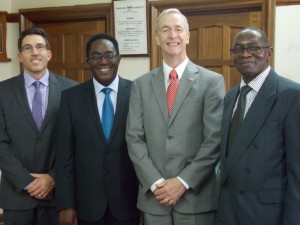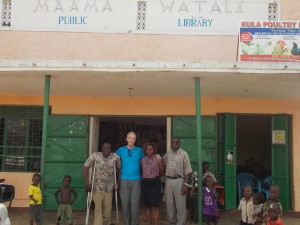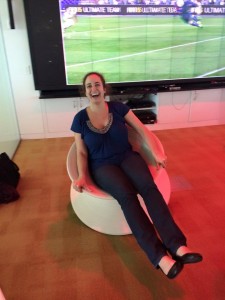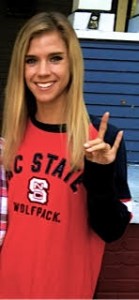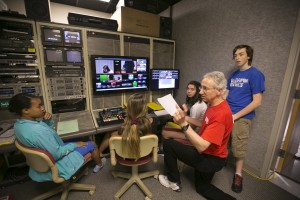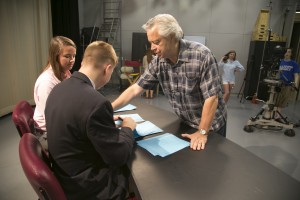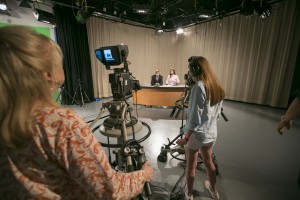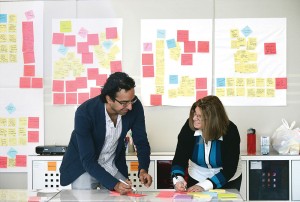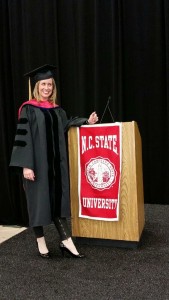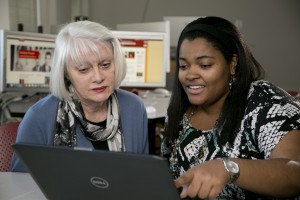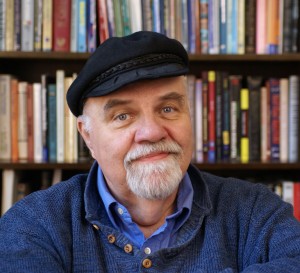By Mallory Deeter
Hannah O’Conner never imagined the impact horses would eventually come to have in her life and how they would lead her to one of the most fulfilling and rewarding experiences of her undergraduate career. “Every little girl loves horses, but I never knew my love of riding would prepare me for an amazing job nine years later,” she said.
O’Conner, a junior in the public relations concentration, currently is the social media intern at Hope Reins of Raleigh, a Christian non-profit dedicated to providing comfort to hurting children and their families by grouping each individual child with a horse and a facilitating leader for one-on-one sessions. These one-on-one sessions are provided free of charge to children who are going through a hard time and focus on true hope and real healing for all participants.
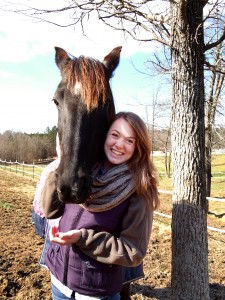
Hannah O’Conner and friend, Ruka, a rescue horse. Ruka means restoration in Hebrew.
In her role as a social media intern, O’Conner regularly corresponds with volunteers, leads bible studies, manages the social media accounts, as well as leads one-on-one sessions with children. Of her numerous responsibilities, O’Conner’s favorite is interacting with the children. When leading a one-on-one session, she teaches the children basic horsemanship and riding techniques, while helping to foster meaningful relationships by building a safe space.
“One of the first kids I connected with ─ his dad passed away in September and he came to Hope Reins two week later ─ likes to come out, groom his favorite horse, Jesse, and sit on a bench with me and talk about life,” said O’Conner. “He’s said that just being on the range makes him happy, makes him feel at peace.”
The kids who come to Hope Reins struggle with a variety of issues including death in the families, bullying problems, abuse or anxiety. Many of the horses at Hope Reins similarly have had challenging backgrounds. By providing opportunities to build relationships between the two parties, Hope Reins facilitates authentic relationships that foster honest communication. Their ideology focuses on using the horse as a medium to share Jesus with the children. By sharing the horses’ individual stories, leaders help the children understand that there is hope and redemption for them.
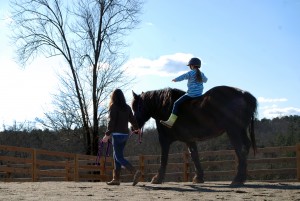
O’Conner leads horse Abby with a child aboard. She says it is humbling and powerful to hear the kids’ stories.
For O’Conner, just being at Hope Reins allows her to take a step back from her everyday life. “You get so wrapped up in your life, and then you go there and hear these kids’ stories and what they have been through. It’s so humbling and powerful to hear how they have overcome their specific challenges,” she said.
As well as interning at Hope Reins, O’Conner is also a member of Sigma Alpha Omega, the Christian sorority on campus. In this community, she has found support to pursue her passion for helping others. She hopes this passion for helping others will guide her career path. Before working at Hope Reins, O’Conner didn’t know much about nonprofits. But now, after working with children and seeing the real impact she has made, she hopes to find purpose through a career in non-profit organizations.


